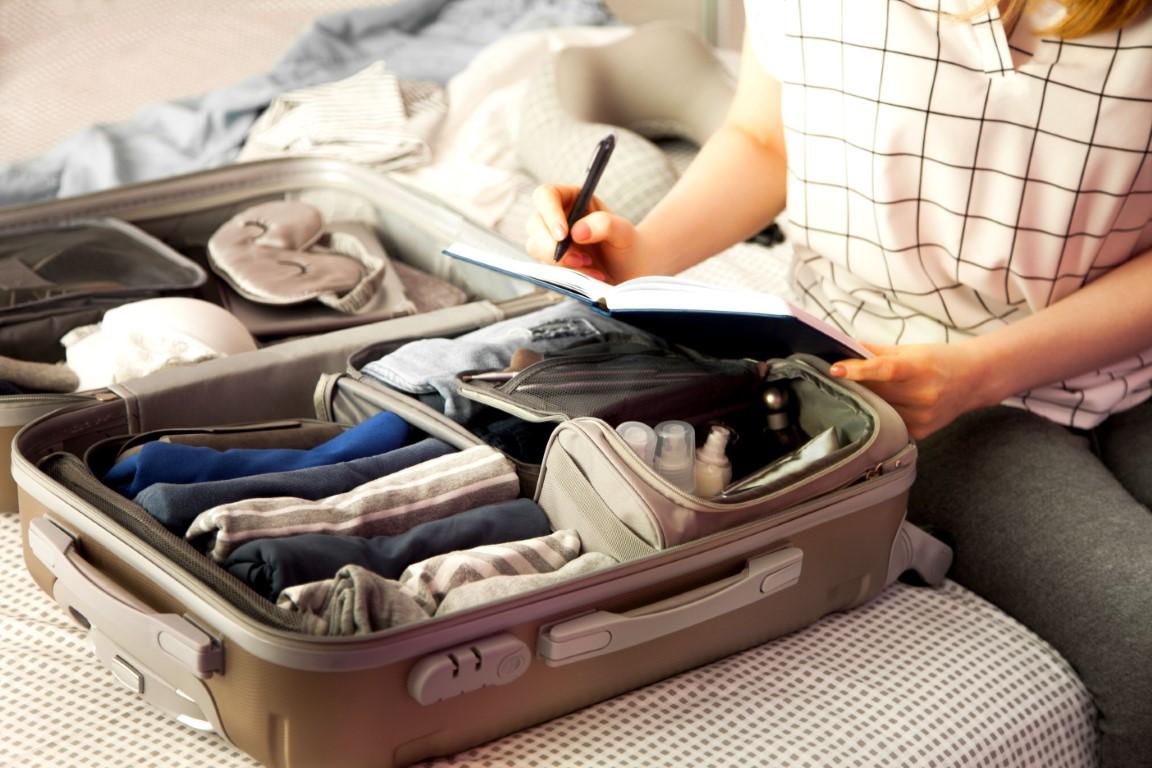Moving to another country can be overwhelming, if not downright scary. Whether you’ve decided to move from the UK to France for a new job or personal reasons, it’s easy to get overwhelmed by all the different practicalities involved in the process.
There are many things to consider when relocating to another country, such as the cost of living, renting an apartment, opening a bank account, or getting a SIM card.
If you’re wondering how to move to France from the UK, not knowing where to start, you’ve come to the right place.
This article will dig into the entire process of moving from the UK to France, guiding you with detailed information about the cost of living, healthcare system, renting an apartment, or opening a bank account.
Everything You Need to Know About Living in France
France is the second most popular relocation destination for British nationals, with 150,000 Brits living there. However, after Brexit, British citizens can no longer move freely to France. This means that the relocation process has gotten more complex.
Moving from the UK to France now requires even more preparation than before, and there are many things you should consider before and after the big move. Let’s cover the most important ones.
Cost of living in France
France can be an expensive country to live in, especially if you live in Paris. But there are many ways to reduce expenses while still enjoying all the country has to offer. First of all, you need to research how much it costs to live in France and prepare accordingly.
The cost of living in France compared to the UK is very similar. According to Numbeo, rent prices in Paris are up to 31.67% lower than in London. However, the cost of groceries in Paris is estimated to be 26.14% higher than in London.
This means that while you’ll likely spend less on your rent than you did back in the UK, you’ll probably spend more on your weekly shopping trip to the Monoprix (the most popular supermarket chain in France).
However, the cost of living is not that high everywhere. For example, the cost of living in the south of France – let’s take Nice, for instance – is estimated to be around 11.5% lower than in Paris.
But as much as we’d like, we cannot give you the exact prices of living in France in this guide, as they vary considerably depending on the region and the city you’ll be living in.
Instead, we recommend you to check them on Numbeo by selecting the city you’re relocating to.
The French healthcare system overview
The public health care system in France is financed through social security contributions paid by employers, employees and the state. All citizens and residents have access to the same level of care regardless of their income or employment status. Because of this, the French healthcare system is considered one of the best in the world.
The French government provides healthcare to its citizens through a national insurance scheme that offers universal coverage. The scheme covers almost 75% of all medical expenses in the country.
The remaining costs are covered by supplementary private insurance plans purchased by individuals who want additional benefits not provided in their basic plan.

All French citizens are required to have some form of health insurance, whether governmental or private. As of 2016, foreigners residing in France have access to PUMA – Protection Universelle Maladie – a new healthcare system designed with foreigners in mind.
The real estate market in France
If you’re moving to France, you’re likely considering either a long-term rental or buying an apartment.
Long-term rentals in France
The rent will likely become your most expensive living cost in France, especially if you plan on living in the French capital.
Paris is known for its tiny studio apartments, which can be as small as 8m2! Despite the microscopic size, these apartments tend to cost no less than €600 (£510) per month. The average monthly rent for a bigger, one-bedroom apartment in Paris oscillates between €900 (£765) to €1,200 (£1,025), or more.
If you’d like to rent a two- or three-bedroom apartment, expect to pay €2,000 (£1,710) per month or even more, depending on the location and size of the property. You may find something more affordable outside the city centre and in the Parisian suburbs.

Since the real estate market in Paris is very saturated, the rent prices there are the highest in the country. You’ll also need to prepare relevant documents to rent an apartment, such as your bank statements, proof of income, and employment contract.
However, if you plan on living in another city, the rent prices will likely be much lower, and it’ll also be easier to rent an apartment long-term.
Buying a property in France
Buying a house in France is a big step, both financially and emotionally. The French property market can be tricky to navigate, especially for non-French speakers.
To buy a house in France, you need to get familiar with the country’s real estate market. The first step is to find out about the average price of properties available on the market, which vary considerably.
The second step would be finding out about the property tax laws so that you can make an informed decision on whether or not investing in a house is a good option for you.
You’ll also need to consider the likelihood of getting a loan. This will depend on many factors, such as your country of origin, earnings, and residential status in France.
Where to find a property for rent or sale in France?
You might be asking yourself: where do I find apartments to rent or properties to buy?
If you’re planning on buying a house in France, turning to a real estate agent for help is the best option. They can assist you not only in finding the right property for you but also in preparing the paperwork and other legal procedures.
A few high-quality real estate agencies in France are Guy Hoquet, Century 21, and IMMO de France.
However, if you’re looking for an apartment to rent, you can use one of the following websites:
Opening a bank account in France for non-residents
You can open a bank account in France as an expat. French banks are used to foreign customers and offer a wide range of services.
Opening an account is straightforward, but you will need to show your passport or national ID card, proof of address and employment status, as well as proof of residence, such as a utility bill.
Once your application to open a bank account is accepted, you’ll receive a RIB (relevé d’identité bancaire), which is essentially a statement of your bank account details.
English-speaking jobs in France
In France, more and more companies are hiring people with a good level of English. This is not surprising because of the growing importance of international trade and tourism.
French companies must hire English speakers as they often have to deal with customers, suppliers and partners who don’t speak French.
So, if you’re looking for English-speaking jobs in France, this is certainly good news for you.
While you can find an English-speaking job in almost any sector, most jobs in France for English speakers are either in the teaching, hospitality, IT, or customer service sectors.
Here are a few sites where you can find English-speaking jobs in France:
If you’re looking for a job as an English teacher or ESL instructor, take a look at these sites for finding teaching jobs in France:
Moving to France from the UK after Brexit
“Can I move to France after Brexit” or “how long can I stay in France after Brexit” are the two most asked questions among the British nationals who plan on moving to France from the UK.
After Brexit, UK nationals cannot freely move to France for an extended period of time. If you’re a UK citizen, you’ll need to apply for the proper long-term visa to get legal permission to reside in France for more than 90 days.
So, while moving to France from the UK after Brexit is more complex than before, it’s still possible. You’ll need a bit more preparation and the correct type of visa.

Visa for France from the UK
If you’re planning to move to France, you’re likely asking yourself if you need a visa to live in France. The short answer is yes.
According to the latest information from the official site of the French administration, a foreigner who’s not an EU resident must hold a long-stay visa (visa de long séjour) to enter and stay in France for more than three months. This visa is granted by the French consular authorities, and it’s most often issued for studies, work or family reasons.
Several types of long-stay visas exist depending on the reason for the stay, its duration and the intention to apply for a residence permit to settle permanently in France.
For example, those who plan on staying in France for up to one year should get a visa de long séjour valant titre de séjour (VLS-TS). This type of visa also acts as a temporary residence permit.
You can find more information here.
Living in France after Brexit: Getting Residence
Are you wondering how to get residency in France after Brexit? Let’s answer this question.
British citizens moving to France for more than 3 months must apply for a French residence permit (carte de séjour). These permanent residence permits are issued for various reasons, such as work, study, retirement, or family reasons. To obtain one, you must apply through your local French prefecture within 8 weeks of arriving in France.
In most cases, you’ll receive a temporary residence permit that lasts for a year, and you’ll be able to renew it each year for a period of 5 years.
However, if you’re planning on staying in France for up to a year, you’ll need to apply for a VLS-TS visa (visa de long séjour valant titre de séjour). This type of visa is non-renewable, but if you want to extend your stay in France, you’ll be able to apply for a carte de séjour at your local French prefecture.
Working in France after Brexit
There are currently many British nationals working in France after Brexit. So yes, you can work in France after Brexit. However, you’ll need to apply for the right work visa.
If you’re planning on working in France for less than 90 days, you’ll need a temporary work permit. However, if you’re planning on working in France for longer than 90 days, you’ll need to apply for a long-stay work visa.
There are many work visa types, which depend mainly on the length of your stay in France and the type of employment. For example, if you’re an entrepreneur or want to start a business in France, you may qualify for a “talent passport” – a long-term visa valid for up to 5 years.
Regardless of whether you’re employed by a French company or delegated to work in France, your employer will need to take care of the visa procedure for you. This means that you’ll need to find work in France before arriving. This way, you’ll be able to arrive in France with the right type of visa from the start and avoid any migration status problems in the future.

Studying in France after Brexit
Are you planning on studying in France after Brexit as a UK national? In that case, you’ll need to apply for a French study visa. Just like with work visas, the type of study visa you need to apply for will depend on the length of your stay in France.
If you’re planning on studying in France for less than six months, you’ll need to apply for a temporary study visa (visa de long séjour temporaire pour études).
And if you plan on staying longer, you’ll be required to have a long-term study visa (visa de long séjour études).
These study visas legally allow you to work less than 20 hours per week.
Driving in France after Brexit
While planning your big move to France from the UK, you’re likely wondering what are the driving requirements in France after Brexit.
The good news is that you can use your UK driving license in France after Brexit. To enable UK nationals to drive in France and vice versa, the authorities of both countries agreed on mutual recognition of driving licences.
I own a house in France. What happens after Brexit?
Owning a house in France after Brexit means you’ll just have to adapt to a few rules. If you’re a property owner in France, you’ll need to apply for a relevant visa depending on how much time you spend at your property within a year.
- If you spend 90 days or less in France within a six-month period, you don’t need a French visa. UK nationals can stay for less than 90 days within a period of six months in a Schengen area without a visa.
- If you spend three to six months within a year in France, you’ll need to apply for a VLS-T Visiteur visa. This is a non-renewable, temporary visa valid for 6 months.
- If you spend more than six months within a year in France, you’ll need to apply for the VLS-TS visa. This is a non-renewable temporary visa valid for one year.
Moving to France from the UK: The Checklist
Moving from the UK to France is a big step. If you’ve been living in the UK for years, moving across the Channel can be a daunting prospect.
We’ve prepared this handy checklist to help you wrap your head around the process and start preparing for the big move, step by step.

Research the country
France is a beautiful country and has much to offer its new residents. However, you must know what you’re getting yourself into before moving. Researching the country will help you make an informed decision about where you want to live and what kind of lifestyle suits you best.
Before the big move, learn as much as possible, not only about the French culture and traditions but also about practical things, such as the French tax system, healthcare system, or current political situation.
Calculate your budget
When relocating to another country, it’s essential to estimate the living expenses you’ll need to cover. This will help you avoid unpleasant surprises after arriving!
Before moving, research the cost of living in the city you’re relocating to and prepare a monthly budget for each of these categories:
- Rent
- Utilities, such as gas, electricity, phone and internet
- Groceries
- Transport
- Eating out
- Entertainment, such as going for a night out with friends or to the cinema on the weekend
- Other activities that fit your lifestyle, such as the gym membership
Secure your French visa
Before you start preparing to move, make sure that you’re up-to-date with the latest visa requirements.
Depending on how long you’re planning to stay in France – whether for 3 months or permanently – you’ll need the correct type of visa that applies to your situation. And depending on the type of visa you need to apply for, you’ll have to prepare different documents during your application process.
These are the different visa categories that you may fall under.
- Work visas
- Study visas
- Family visas
- Working holiday visas
- Long-stay visas for religious purposes
- Long-stay visas for other purposes
You can find the official information about the visa requirements for the UK nationals on the France-Visas site.
Organise your move
Organizing your move is the most exciting part of your journey, except for actually arriving in France. Relocating from one country to another always requires a lot of thought and preparation, so it’s best to break down the process into smaller steps.
To organise your move, you’ll need to:
Organise your paperwork:
Preparing your documents may be a bit tedious, but it’s important that you have everything sorted out properly before your move.
First, make sure that all your documents are valid, such as your passport, driving license, and ID, are valid. Then, ensure you’ve sorted all the important documents, such as medical documents, education certificates, banking documents, etc.
Sell the stuff you don’t need:
If you’re planning a big move, you’re likely eager to get rid of all the things you won’t take with you or that you don’t need anymore. You can sell them on internet marketplaces like eBay and put the money into your savings account.
Find a storage unit:
This may be an excellent solution if you want to keep a few things but don’t have a secure place to store them while you’re away.
Plan the transportation:
Depending on how many things you’re taking with you, you’ll need to choose the most suitable form of transportation from the UK to France.
If you’re moving with just a few suitcases, you can go by plane or train. But if you’re taking plenty of boxes, hiring a professional removal company may be the best option.
Sort your utilities
Before or immediately after arriving in France and settling into your new home, you’ll need to sort your utilities. If you’re renting an apartment, you may already have all the utilities, such as electricity, gas, and even internet, set up in the flat.
But in case you need to sort them out on your own, here’s a quick overview:
- Electricity: Most French homes have electricity and gas supplied by EDF (Électricité de France). The good news is that you can set it up online, even before you move.
- Internet connection, TV, and landline: If your new home doesn’t have a landline, TV, or internet connection, you’ll have to do it upon arrival. To set them up, you can go to Bouygues Telecom, SFR, or Orange – the three biggest internet providers in France.
Open a French bank account
Using your UK bank account in France may work for a while, but eventually, you’ll need to open a French account – especially if you’re planning to stay in France for more than 3 months.
Opening a bank account is pretty simple, even for non-residents. With online banking, you’ll be able to open an account online, even before moving to the country. This way, if you need to sort your utilities or get a contract with an internet provider, you’ll be able to do that with a French bank account.
Apply for a residence permit
As we’ve already mentioned in this article, British citizens living in France for longer than 3 months are required to apply for a carte de séjour – a temporary residence permit.
Although you’ve got two months to do that after arriving in France, it’s advisable to do it as soon as possible. All you need to do is go to the nearest French prefecture and register for your permit!
Retiring to France from the UK
With the UK no longer being a part of the European Union, British pensioners looking to retire to France might be wondering if it’s still possible for them. It is! If you’re planning on relocating to France for your retirement after Brexit, you can still do it, but you’ll have to apply for the correct visa and meet specific requirements.
So, let’s go over what you need to know to retire to France from the UK.
Retiring to France from the UK: Retirement visas
There is no specific visa for retirees who wish to move to France. While there is a residency card called “carte de séjour retraité”, it doesn’t apply to anyone wishing to retire to France.
So, you’ll need to go through the same process as everybody else who wants to relocate to France. Let’s break down the process into simple steps:

Step 1: Apply for a long-stay visa for visitors (visa de long séjour visiteur or VLS-TS Visiteur). This visa is for people who want to live in France long-term without working. To meet the criteria required to obtain this visa, you’ll need to prove that you have enough means to support yourself in France without working for the duration of the visa.
Note that you can’t apply for this visa if you want to run a business or work in France as a retiree. In that case, you’ll need to apply for a relevant work visa.
Step 2: Apply for your carte de séjour within 8 weeks of arriving in France. This is a temporary residency card valid for one year. You can renew it every year for a period of 5 years.
Step 3: After you’ve spent 5 years living in France while renewing your carte de séjour each year, you can now apply for a permanent residency card (carte de résident permanent). Congrats! You’re now a permanent French resident.
Retiring to France from the UK: Pensions
As a retiree expat in France, you’ll still be able to receive your UK state pension. Moreover, your UK pension will still benefit from the uprating system, which means it’ll continue to rise proportionately to inflation and other factors.
You might also be able to transfer your UK private pension funds into the QROPS scheme (Qualifying Recognised Overseas Pension Scheme). However, if you’re thinking of doing that, you should keep up-to-date with the continuously changing laws after Brexit to see if it’s truly beneficial for you.
Retiring to France from the UK: Healthcare
One of the requirements to apply for a long-stay visa to retire to France is proof of healthcare. To get your visa, you’ll need to provide proof of international health insurance with your application to get your visa.
This insurance needs to be valid for the entire duration of your stay in France (or the duration of your visa) and provide a minimum coverage of €30,000. It also needs to cover the costs of medical repatriation and hospital treatment.
Once you arrive in France, you can cancel your international health insurance and apply for the French one instead. If you receive a pension from the UK, you can still apply for the S1 form to cover healthcare costs in France.
Where to Live in France if You are English
If you’re a British citizen planning to move to France, you might be wondering where is the best place to live in France. You might be looking for an expat community and asking yourself where do most British expats live in France.
Here are the 5 most popular regions among British citizens who relocated to this beautiful country.

Ile-de-France
Ile-de-France is the most popular French region amongst expats in general. Given that Paris is the capital city of this region, this comes as no surprise! Paris has everything you can ask for: culture, history, business centres, nightlife, restaurants, etc.
And for those who want to escape the chaos of a big city, the smaller towns on the outskirts of Paris are an excellent place to find the balance between the suburb and city lives.
Poitou-Charentes
The French region of Poitou-Charente is a popular place for British expats. The area has a long history of welcoming British residents, with many choosing to move there permanently after spending time in the region on holiday.
Poitou-Charente is situated on the west coast of France and borders the Atlantic Ocean. The area has been inhabited since prehistoric times and has some of the oldest towns in France, such as Poitiers, La Rochelle, and Saintes.
Aquitaine
Aquitaine is one of France’s most popular regions for British expats. The Aquitaine region is located on the southwest coast of France and borders Spain. The area attracts many expats due to its mild Mediterranean climate and beautiful beaches.
The capital of Aquitaine and its biggest city is Bordeaux. Other major cities in the region include Bayonne and Biarritz – one of the favourite holiday towns of the French.
Midi-Pyrénées
The Midi-Pyrenees region, which is part of the Occitania region since 2016, is a large area in southwest France, popular with expats because of its proximity to Spain.
The region has a rich history and culture, with its capital city, Toulouse, home to beautiful architecture and some fantastic restaurants.
Brittany
Brittany is a region in the northwest of France and is one of the most popular regions for British expats. It’s renowned for its beautiful coastline, which has a few of France’s most beautiful beaches.
There are many reasons why Brittany is so popular with British expats: the climate is milder than other regions in France, there are excellent transport links to other parts of France and Europe, it has a thriving economy, and delicious regional cuisine.
Moving to France from the UK doesn’t need to be difficult!
This wraps up our guide on moving to France from the UK. If you’re a British citizen considering relocating to France, our advice will hopefully prove helpful.
Of course, there’s plenty more to consider, such as residency and other immigration issues. To keep up with the latest visa requirements, visit the official French government websites.
FAQs about Moving to France from the UK
If you want to stay in France for more than 3 months, you’ll need to apply for a French residence permit (carte de séjour) 8 weeks after your arrival. You can also apply for a VLS-TS visa (visa de long séjour valant titre de séjour), valid for a year, before departure.
Yes, a UK citizen can buy a house in France and even rent it. But to live in France permanently, a UK citizen still has to apply for a residence permit.
The French government provides healthcare to its citizens and residents through a national insurance scheme that offers universal coverage. The scheme covers almost 75% of all medical expenses in the country. But it is not exactly free, as it is financed through social security contributions paid by employers, employees, and the state.







